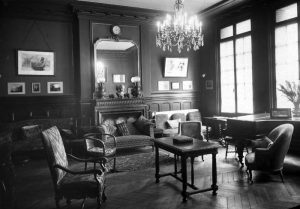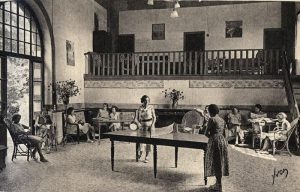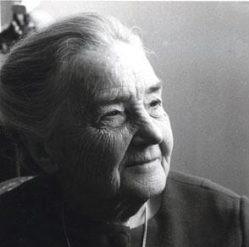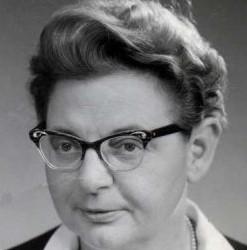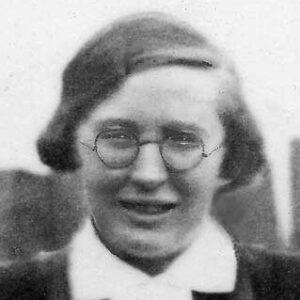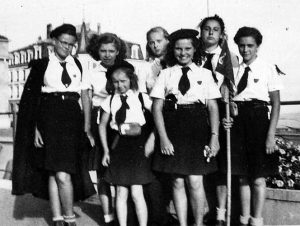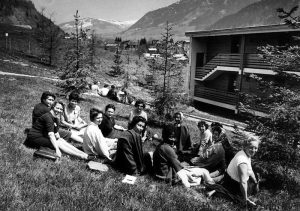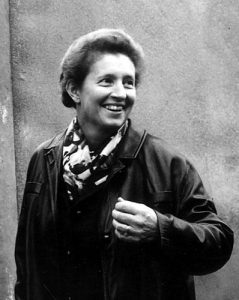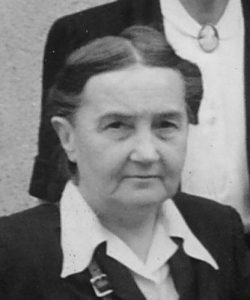The creation of the UCJG
At the end of the 19th century in 1894, the Universal Alliance of Christian Unions or Y.W.C.A. was created thanks to the getting together of Unions in Great Britain, the United States, Norway and Sweden.
It then spread to Switzerland, Italy and France despite authorised people’s reluctance. Nevertheless at the beginning of the 20th century the final step was taken, and the Unions found their own expression.
The Aim of the "Unions"
- To think of the needs of its subscribers – mostly maids, female workers and shop-assistants ;
- creating activities to improve their lives ;
- confronting the problems due to social class differences ;
- taking them step by step to parish life and to faith.
The people in charge of these associations had to meet these requirements, which involved a deep reflection on women’s fate, still markedly questioned by the male community rejecting all forms of emancipation for women.
Management and financial support
The “patronage committee” mostly comprised bourgeois, not to say aristocrats, who wanted to implement all the precepts of “Social Christianity” founded by the pastor Tommy Fallot (1844-1904). It meant that women and young women had “a sacred obligation to bring to more destitute ones a breath of the beneficial air they had at home.” Pastors’ wives and daughters progressively supported the Unions, especially in the provinces.
Getting financial support from protestant donors meant recognition, which came with time. The comparison with the Young men’s Christian Unions (UCJG) which had just opened its building in the rue de Trévise, Paris 9th arrondissement – where the headquarters still are today- was detrimental to the still small UCJF But thanks to the willpower of women who supported the association, and to the financial help of American young women’s associations, YWCA, sections were created within the Alliance of Christian Unions. On 10 March 1912 they eventually opened their head office in a building situated, 22 rue de Naples, Paris 8th arrondissement.
The paper Christianity in the 20th century reported the event thus spreading and developing the influence of the UCJF, but also creating links with the already expanding UCJG (7,000 members in 1902) which led to common rejoicing. At a time when coeducation wasn’t even thought of, young women and young men first met for religious education, then for parish activities. They were to get closer as students. Such were the beginnings of the “Fédé” to be.
Modernity of the Christian unions
Just before World War I the UCJF opened reception and work offices for female workers and clerks.
In those days Christian Unions wanted to promote the education of young girls and supported the creation of Cadettes Unions following the English Girls Guides pattern. They were the first core of girl scouting which later became first the Éclaireuses Unionistes (Unionist Girl Scouts), and later the Fédération Française des Éclaireuses – FFE – (French Federation of Girl Scouts).
But the Unions could not avoid the ambiguity which characterised many associations and charities, i.e. to do social work by helping young women and men of the poorer social classes, who were generally not protestant, and to evangelize them.
In fact the range of religions among the part-takers prompted a very new way of thinking of ecumenicalism, unheard of until the 1920s. A number of women, formerly with the UCJF, took an active part in the creation of the “Ecumenical Council of Churches” in 1948.
The UCJF was opposed to the nineteenth century idea that young women should not further their studies and surely be diverted from their traditional tasks as housewives. The union promoted the reflection of women on their difficulties to access university studies and to fulfil parochial and even political duties.
The UCJF can thus be considered as the initiator of “feminism” before its time, which helped women become aware of their potentialities and responsibilities.
The management no longer was of a “bourgeois patronage” type at the beginning of the century. The “active members” were mostly from protestant parishes, whereas “associated members” – asked to advocate a “striving after a moral life” – were female workers, students and soon foreigners in growing numbers.
As the century progressed, the “Fédé”, the Young Women’s Movement and the FFE (French Federation of Girl Guides) became new places for meetings, reflection and involvement. They also defined their present role as non exclusive lay organisations still advocating the protestant values referred to by their founding members.


